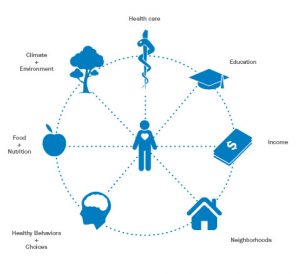The classes presented in this group of academia are beneficial to me in the sense that they help me evaluate and assess healthcare. I will be learning critical skills to study, recognize problems, and think of strategies to manipulate healthcare systems for the better. Having a “big picture” look at healthcare and all the fields it directly and indirectly affects will allow me to be a productive member of the healthcare community.

Medical Anthropology
This course will assess the dynamics of healthcare across many cultures and subpopulations. We will be looking at the access to healthcare, the values placed on healthcare and various types of healthcare (acute care, long term, holistic, etc). Studying the way in which people view medicine can help to gain perspective on global health.
Healthcare Econonomics
After obtaining a basis of economics, it was infinitely beneficial to study economics in the healthcare setting. Being able to assess the politics of money, time, equipment, resources, and perhaps most importantly, insurance, will give a very helpful insight. Additionally, I will be able to use these skills to assess cross-cultural healthcare economies. American healthcare is exponentially more expensive than any other country, and I want to study why that is.
Biomedical Ethics
This class studies the ethics of various medical practices around the world. We assess specific cases and the philosophical thought behind the case, some arguments in favor and some against the ethics of the situation. This created a new perspective of thought for students, and it encouraged a deeper level of thinking in correspondence to medical scenarios. The ethics of dealing with a human body differ dramatically across cultures, religions, etc and having the capacity to recognize and ponder that is an asset to working in the healthcare field.
Frontiers of Aging
The study of aging and how we, as a society, deal with aging is a fascinating and relevant topic. We will be diving into questions about end-of-life care and how our perception of it has changed over time. What are the familial responsibilities with the elderly? What do our facilities look like and their regulations? Studying the inevitable end-of-life stage will broaden my realm of public health professionalism, especially because Long Term Care is astonishingly prominent in America.
